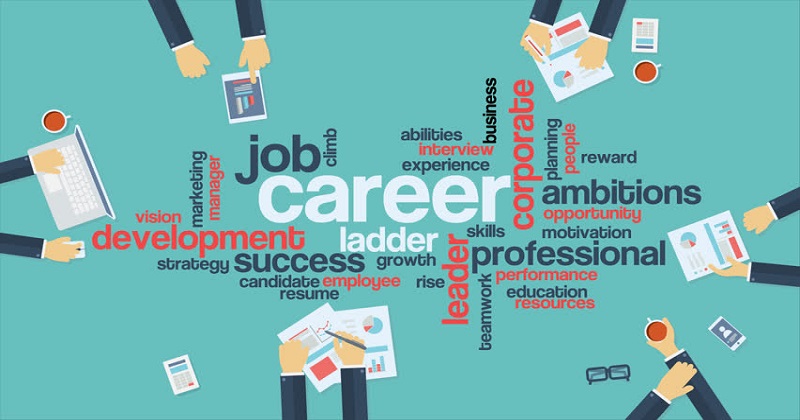
10 Effective Ways to Help Your Employees with Career Development
In today's competitive business landscape, fostering employee career development is crucial for both individual satisfaction and organizational success. Employees who feel supported in their professional growth are more likely to be engaged, productive, and loyal to their employers. In this blog, we will explore ten effective ways to help your employees advance their careers, ensuring a mutually beneficial relationship between them and your organization.
Importance of Career Development for Employee Satisfaction and Retention
Career development is not just a nice-to-have perk; it's a vital component of a successful business strategy. Employees who see a clear path for growth within the company are more likely to stay long-term. This reduces turnover rates and the associated costs of hiring and training new staff. Moreover, employees who feel their career aspirations are supported tend to be more motivated and productive.
Role of Mentorship and Coaching in Career Development
One of the most impactful ways to support career development is through mentorship and coaching. These programs connect less experienced employees with seasoned professionals who can provide guidance, share knowledge, and offer support. Mentorship fosters a culture of learning and growth, while coaching helps employees develop specific skills and overcome challenges.
Implementing a Mentorship Program:
- Identify potential mentors: Choose experienced employees who demonstrate leadership skills and a willingness to guide others.
- Match mentors and mentees carefully: Ensure compatibility in terms of career goals, interests, and personalities.
- Set clear objectives: Establish goals for the mentorship relationship, such as skill development or career progression.
- Provide resources and support: Offer training for mentors and regular check-ins to ensure the program's success.
Benefits of Providing Continuous Learning Opportunities
Continuous learning is essential for keeping employees' skills up-to-date in a rapidly changing job market. By offering various learning opportunities, you can help employees stay competitive and feel valued.
Types of Continuous Learning Opportunities:
- Online courses and certifications: Platforms like Coursera, Udemy, and LinkedIn Learning offer a wide range of courses.
- Workshops and seminars: Host in-house or external workshops on relevant topics.
- Conferences and industry events: Encourage attendance at conferences to network and learn about industry trends.
- Tuition reimbursement programs: Provide financial assistance for employees pursuing further education.
Implementing Career Development Plans and Paths
Creating clear career development plans and paths helps employees understand what they need to achieve to progress within the company. This clarity can boost motivation and performance.
Steps to Implement Career Development Plans:
- Conduct career assessments: Help employees identify their strengths, weaknesses, and career aspirations.
- Set SMART goals: Ensure goals are Specific, Measurable, Achievable, Relevant, and Time-bound.
- Develop action plans: Outline the steps employees need to take to reach their goals, including training, projects, and milestones.
- Regularly review and update plans: Conduct periodic check-ins to assess progress and make necessary adjustments.
Encouraging Employees to Set and Achieve Career Goals
Encouraging employees to set and achieve their own career goals fosters a sense of ownership and commitment to their development. This can be done through regular performance reviews and one-on-one meetings.
Tips for Encouraging Goal Setting:
- Use performance reviews effectively: Discuss career aspirations during reviews and set related goals.
- Provide goal-setting workshops: Offer training on how to set effective and realistic career goals.
- Celebrate achievements: Recognize and reward employees who reach their career milestones.
Providing Resources and Support for Skill Development
To facilitate career development, it's essential to provide the necessary resources and support for skill development. This can include access to training programs, learning materials, and professional development resources.
Resources for Skill Development:
- Skill-building workshops: Organize in-house training sessions on specific skills.
- Professional development libraries: Create a repository of books, articles, and online resources.
- Subscription to industry publications: Provide access to journals and magazines that offer insights into industry developments.
Offering Job Rotation and Cross-Training Opportunities
Job rotation and cross-training are effective strategies for career development, as they expose employees to different roles and responsibilities within the organization. This not only broadens their skill set but also helps them find their niche.
Implementing Job Rotation and Cross-Training:
- Identify suitable roles: Choose roles that complement each other and offer valuable learning experiences.
- Set rotation schedules: Create a timetable for employees to rotate through different positions.
- Provide necessary training: Ensure employees receive the training needed to perform new roles effectively.
- Monitor and evaluate: Track progress and gather feedback to refine the program.
Creating a Culture of Feedback and Open Communication
A culture of feedback and open communication is vital for career development. Employees need regular, constructive feedback to improve and grow in their roles.
Building a Feedback Culture:
- Encourage open dialogue: Foster an environment where employees feel comfortable sharing their thoughts and concerns.
- Provide regular feedback: Offer timely, specific, and actionable feedback during one-on-one meetings and performance reviews.
- Train managers in feedback delivery: Ensure managers are equipped with the skills to give constructive and motivating feedback.
Recognizing and Rewarding Career Growth Achievements
Recognition and rewards play a significant role in motivating employees and reinforcing positive behavior. Acknowledging career growth achievements can boost morale and encourage others to pursue their development goals.
Ways to Recognize and Reward:
- Public recognition: Celebrate achievements in team meetings or company-wide communications.
- Monetary rewards: Offer bonuses or salary increases for significant milestones.
- Career advancement: Promote employees who have demonstrated significant growth and potential.
Utilizing Technology and Tools for Career Development
Leveraging technology can enhance career development efforts by providing employees with access to a wide range of resources and tools. These can help streamline the development process and make it more efficient.
Tech Tools for Career Development:
- Learning management systems (LMS): Implement an LMS to manage and track training programs.
- Career development platforms: Use platforms like Degreed or LinkedIn Learning for personalized learning paths.
- Feedback and performance management tools: Utilize software like 15Five or Lattice to facilitate regular feedback and performance tracking.
Conclusion
Supporting employee career development is a win-win strategy for any organization. By investing in your employees' growth, you not only enhance their satisfaction and retention but also boost your company's overall performance and competitiveness. Implementing the ten strategies outlined in this blog will help you create a robust career development program that benefits both your employees and your organization.
Career Development





